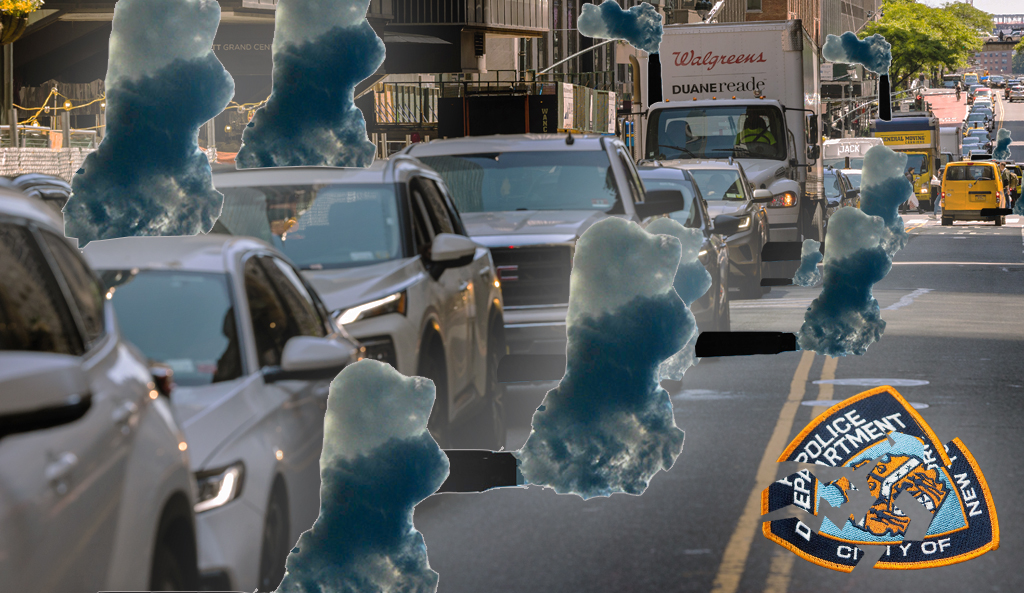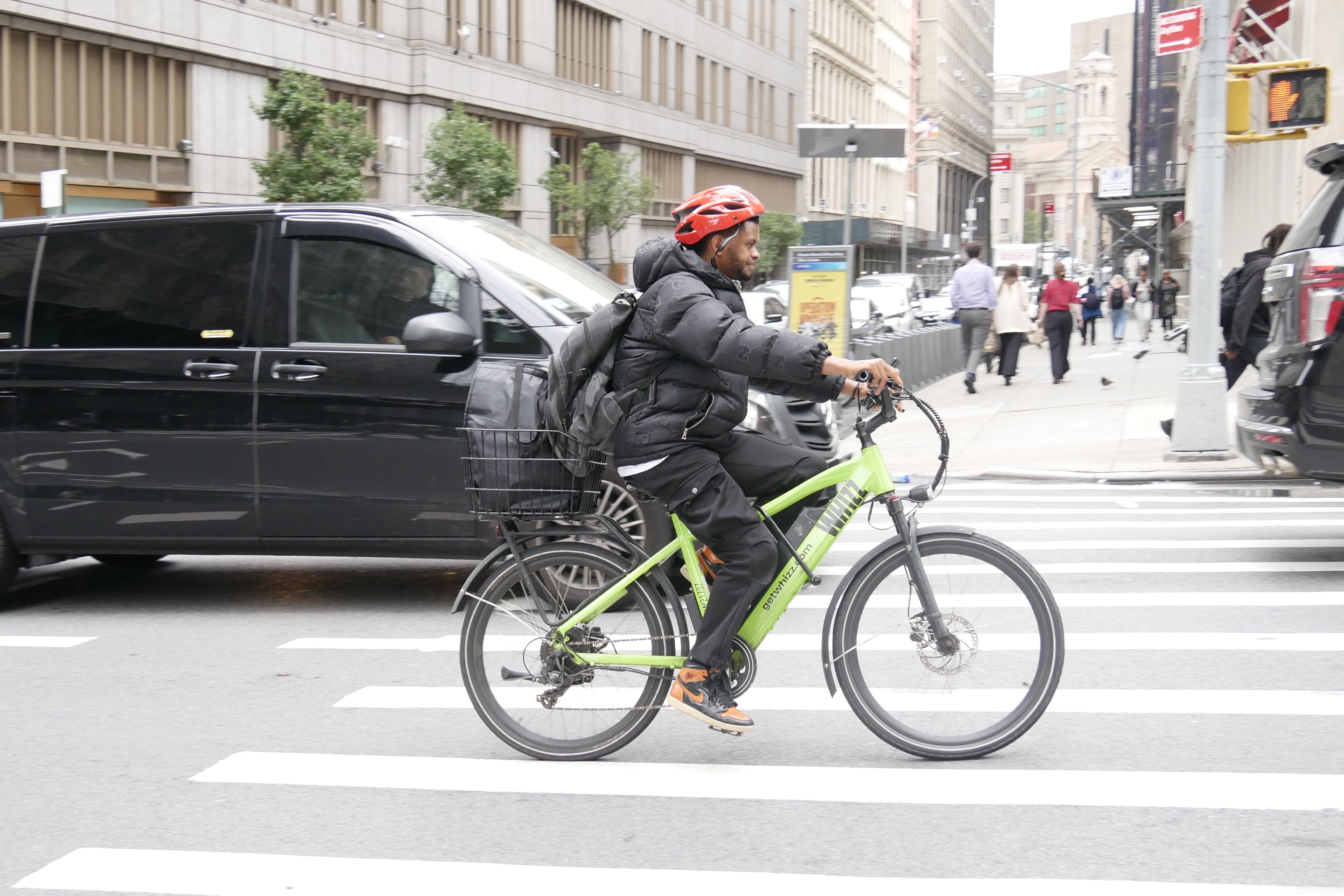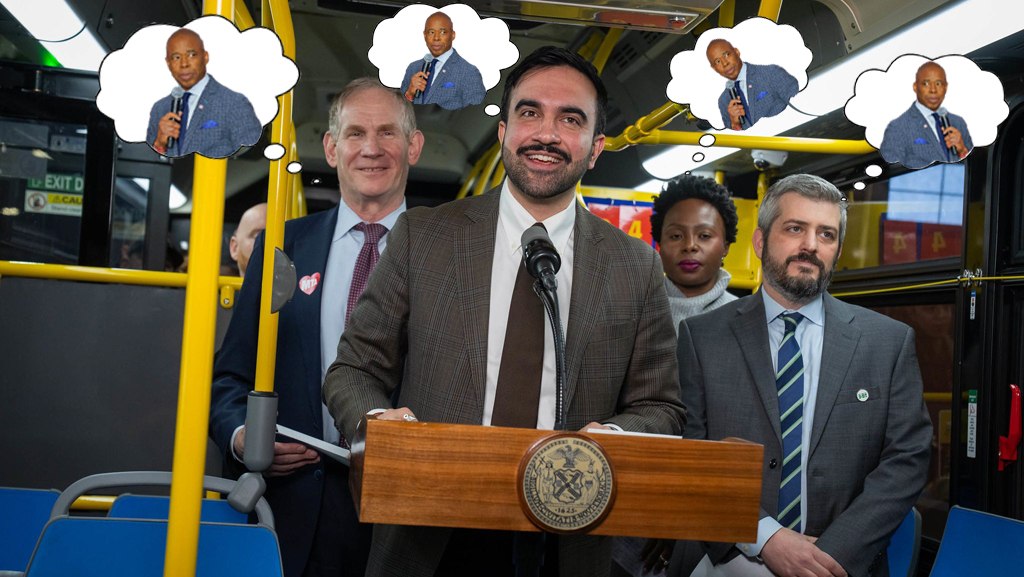The NYPD has more or less stopped enforcing one of the city's oldest environmental laws, issuing just 34 violations to idling drivers as of last week — on pace for an almost 100-percent drop compared to six years ago.
Between Jan. 1 and Aug. 31, according to city data, cops issued just 35 idling violations, down from 112 in all of last year, 323 in 2021 and 1,946 in 2020, the year then-Mayor Bill de Blasio launched (with rocker Billy Idol) the "Billy Never Idles" campaign to draw attention to the smog-emitting traffic offense.
The 35 tickets so far this year puts the NYPD on pace for 52 total tickets in 2023. Compared to the nearly 6,000 tickets cops issued in 2018, that's a 99.1-percent drop in just six years.
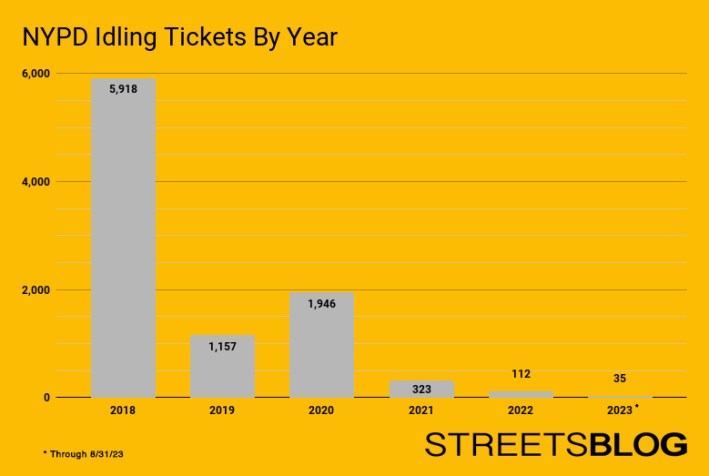
New York's over 50-year-old idling ban dates back to the administration of Mayor John Lindsay, and is as relevant today as ever. The smoke from Canadian wildfires this June was just the tip of the iceberg: Car traffic is one of the main drivers of PM2.5, the dangerous fine particulate matter that concerns air quality experts most, according to the city's Department of Health.
“Idling causes particular localized air pollution that is especially bad for people who already have breathing issues, heart conditions, other chronic health issues like that," said Patrick McClellan, policy director for the New York League of Conservation Voters. "It’s especially bad for people who are elderly, for small children and for people suffering asthma.
“It’s a serious public health issue," McClellan added. "The anti-idling laws have been on the books for a very long time because pollution ... was a hot-button issue, people understood that idling was harmful to public health."
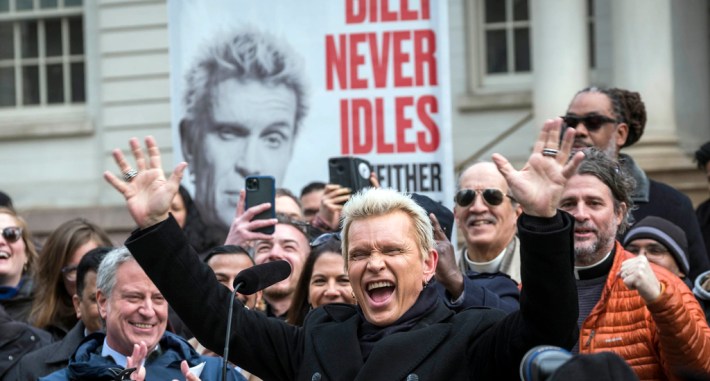
The Police Department's withdrawal from idling enforcement is part and parcel with a larger withdrawal from traffic enforcement generally. Cops today issue an infinitesimal percentage of red light and speeding tickets, leaving the bulk of the work to cameras: Police-issued tickets account for just 1.85 percent of speeding tickets issued so far this year, according to public data.
The NYPD disagreed with Streetsblog's conclusion arguing that the agency "continues to address violations when observed," according to a police spokesperson who declined to provide a name.
Cops aren't the only city officials tasked with enforcing the life-saving idling law. The Department of Environmental Protection issues tens of thousands of violations each year, mostly through a civilian complaint program that rewards complainants with a bounty if the violation isn't successfully appealed.
Nearly three-quarter of the 48,979 civilian complaints in 2022 resulted in a summons, according to DEP, but the program's jurisdiction is limited to trucks and heavy duty vehicles. That leaves most idlers — car drivers — without minimal threat of enforcement.
If NYPD has decided DEP can handle the idling enforcement, it should have shifted those resources to other traffic safety needs, said Jon Orcutt, former policy direction for the city Department of Transportation.
“It just means more people get to do more illegal stuff in cars and trucks," Orcutt bemoaned. “This whole thing is a facet of the police department setting its own priorities and turning it’s back on the mayor if it wants."
